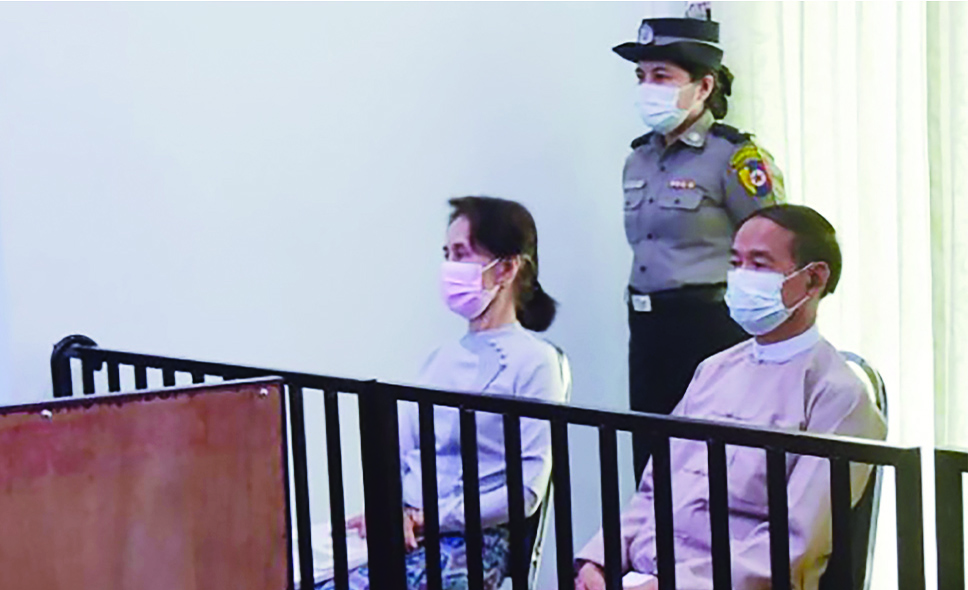YANGON, Myanmar: Hearings for the trial of ousted Myanmar leader Aung San Suu Kyi will be moved to a prison compound in the military-built capital Naypyidaw, a source with knowledge of the case said Tuesday. The Nobel laureate, 77, was detained by the military when it ousted her government last year and faces a raft of charges that could see her jailed for more than 150 years.
She has since been confined to an undisclosed location in Naypyidaw, leaving only to attend hearings in a municipal compound in the east of the sprawling, low-rise capital inaugurated by the army in 2006. Future hearings "will be conducted at the new Special Court in Naypyidaw Prison" following the completion of a new court building in the compound, said a source with knowledge of the case.
The source did not give further details. Suu Kyi's lawyers have been banned from speaking to the media and journalists barred from her trial. Under a previous junta regime, she spent long spells under house arrest in her family mansion in Yangon, Myanmar's largest city.
Her current detention has seen her links to the outside world limited to brief pre-trial meetings with her lawyers. She has already been convicted of corruption, incitement against the military, breaching COVID-19 rules and breaking a telecommunications law, with a court sentencing her so far to 11 years.
Suu Kyi turned 77 on Sunday and brought a birthday cake to court to eat with her lawyers ahead of a hearing on Monday, according to a source with knowledge of the matter. Meanwhile, the Myanmar junta's plans to execute political opponents may amount to war crimes or crimes against humanity, a UN official said Monday. The junta said on June 3 it would execute a former lawmaker from Aung San Suu Kyi's party and a prominent democracy activist, both convicted of terrorism, in what would be the country's first judicial executions since 1990.
Four people, including former MP Phyo Zeya Thaw and democracy activist Ko Jimmy, "who were sentenced to death will be hanged according to prison procedures", junta spokesman Zaw Min Tun told AFP then. Nicholas Koumjian, head of the UN's Independent Investigative Mechanism for Myanmar, said he was following this case closely.
"The available information strongly suggests that under international law, fundamental rights of the convicted persons were blatantly violated in these proceedings," Koumjian said of the trials, which were closed to the public. "Imposing a death sentence, or even a period of detention, on the basis of proceedings that do not satisfy the basic requirements of a fair trial may constitute one or more crimes against humanity or war crimes," he added.
The junta has sentenced dozens of anti-coup activists to death as part of its crackdown on dissent after seizing power last year, but Myanmar has not carried out an execution for decades. For a trial to be considered fair it must be held in public to the greatest extent possible, said Koumjian.
"Exceptions based on national security or other considerations must be limited to the extent that they are strictly justified," he said. But in these cases, "it appears that there were no public proceedings nor are the judgments publicly available".
This raised doubts as to whether the tribunal was impartial and independent, he added.The UN mechanism for Myanmar was created by the UN human rights council in 2018. Its task is to gather evidence of international crimes and human rights violations in the former Burma and document them with a view to facilitating criminal proceedings. - AFP











